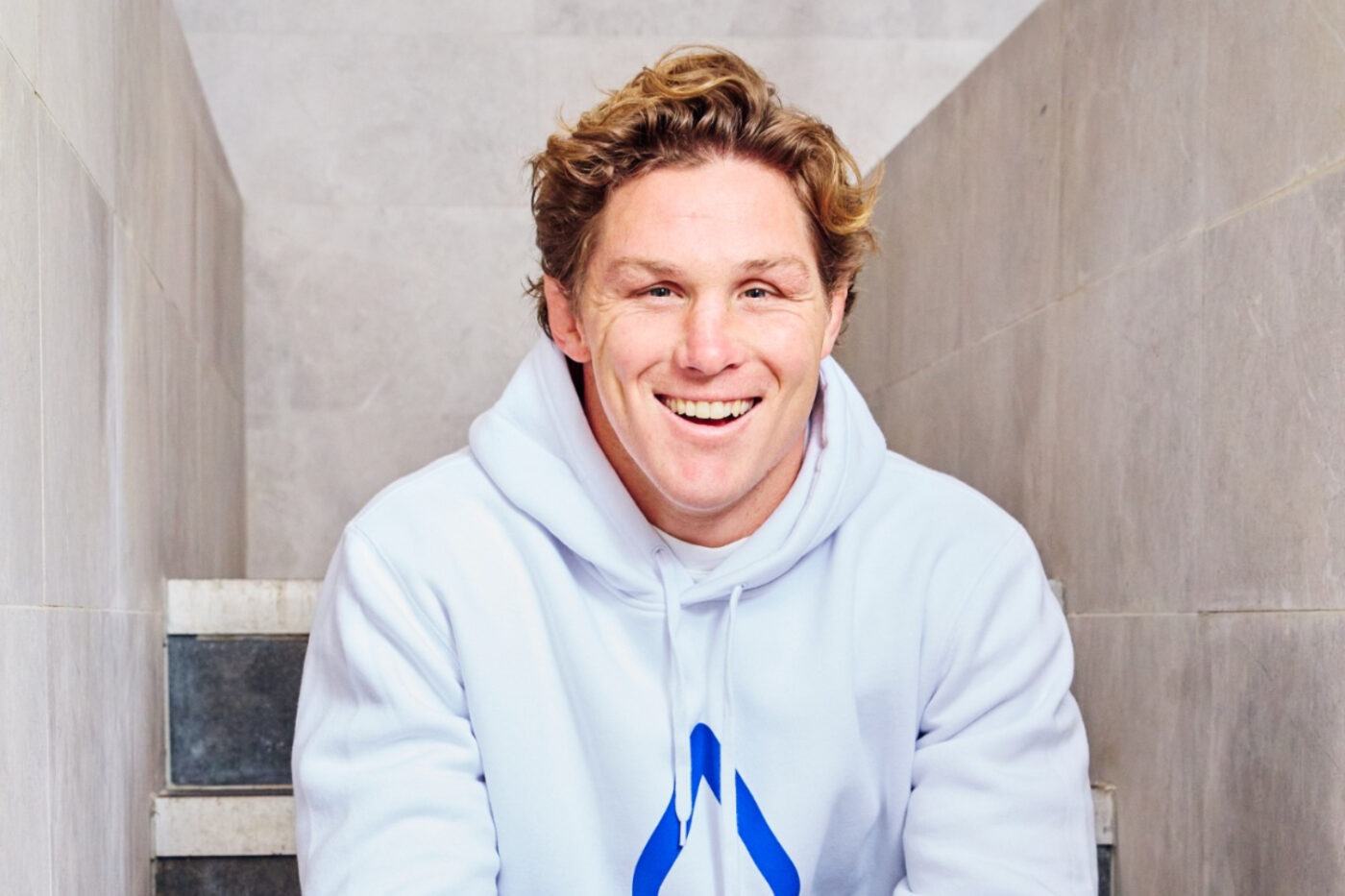We sat down with Michael Hooper after a shock omission from Australia’s World Cup squad forced him to reflect on a storied career, but he’s since redirecting his focus into new ventures within the community, embracing family life and training for an Olympic dream.
Less than a month out from one of the biggest and hotly contested Rugby World Cups in recent years, returning Wallabies coach Eddie Jones took the bold decision to omit the team’s mainstay captain Michael Hooper after more than a decade of loyal service in the role.
It was a hard one for Wallabies fans to understand, as just six weeks prior, Michael Hooper stood next to James Slipper as the pair were announced as Australia’s co-captains heading into the World Cup.
With the pair boasting more than 200 caps between them, it felt like experience would prevail, steadying the rocky ship Jones had inherited following a disappointing final run of fixtures under his predecessor…
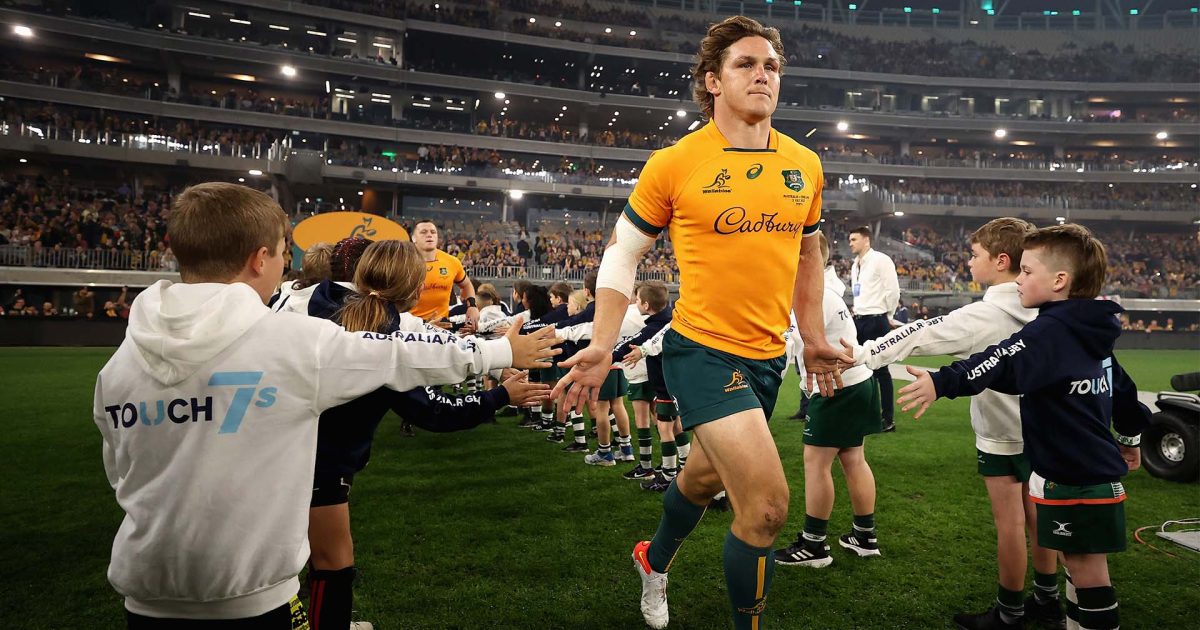
Build-Up To RWC 2023
It was originally reported that the decision to omit the Wallabies captain from the travelling Rugby World Cup squad in Paris was down to an ongoing calf injury; a routine one that usually requires a recovery period lasting just a handful of weeks. “Mate, the calf’s fine – it has been for some time now,” Michael Hooper told us over a video call this month.
The former Wallabies captain had just returned from an overseas fixture with the Barbarians in Wales when we sat down to speak with him. It was Hooper’s first competitive rugby fixture since July, signalling the end to one of the longest periods away from the game since making his Super Rugby debut more than a decade ago.
“I still think I’ve got it… I still think I could’ve had a good crack at it. I signed a five-year contract in 2018 to try and get two World Cups out.”
Michael Hooper
“As a rugby player, you know that injuries are there and it can be a factor. I got injured and that muddied the timelines of things a bit for how long it was going to take [for his calf to heal] because it was taking a bit longer. But that World Cup was going to be – I was fully ready and willing to give everything I had to that campaign. But you don’t get it sometimes; I’ve had a good run.”
Ultimately there was no room for Michael Hooper in Jones’ 33-man squad. Jones claimed the Centurion was no longer a suitable role model for his new-look Wallabies side; that he was no longer obsessed with winning.
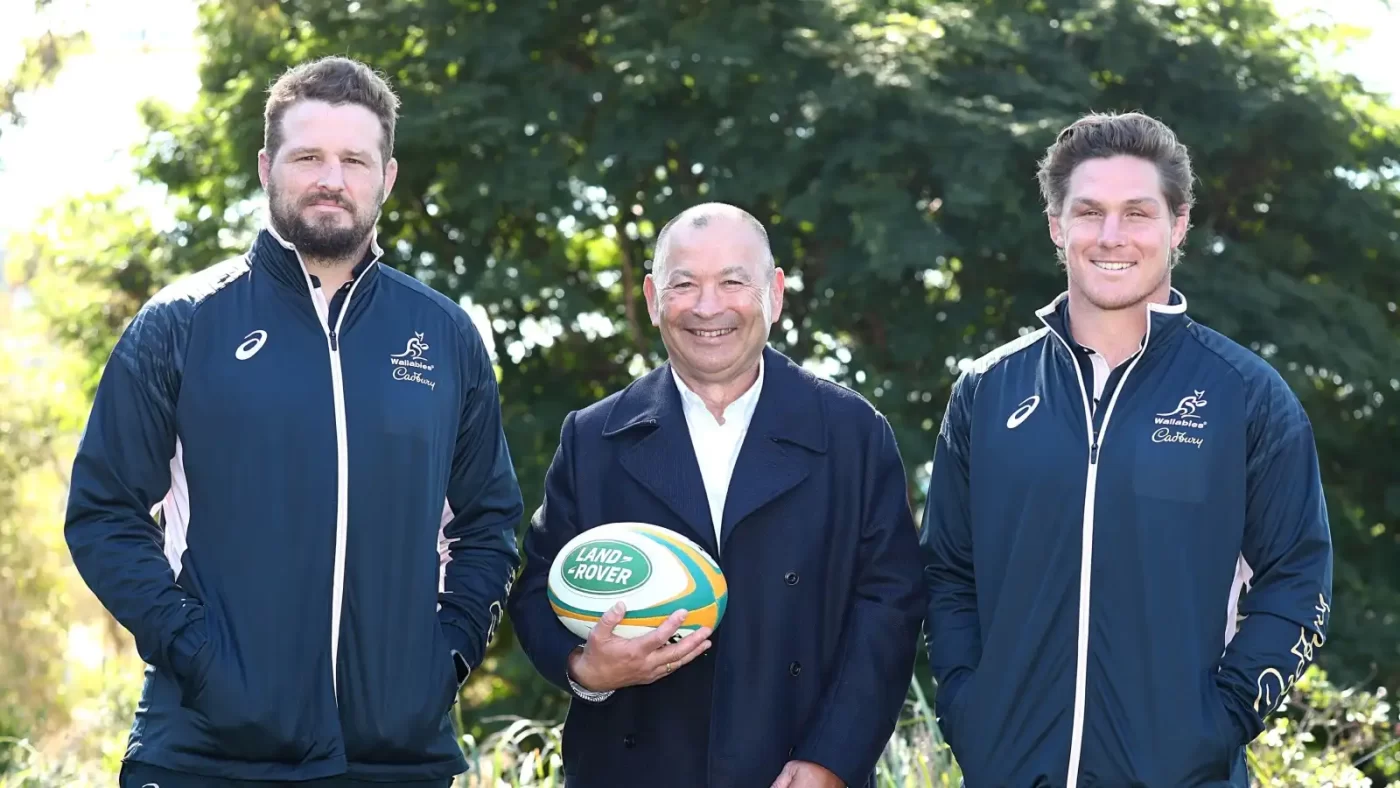
When The Bad News Broke
A crucial player in Australia’s history, Hooper had conducted himself with the utmost professionalism for the entirety of his career. To be overlooked for the biggest tournament of the rugby calendar, at a time when the Wallabies, arguably, were calling out for a leader was puzzling for Wallabies fans just a few weeks out from the first game against Georgia.
“It was difficult,” Hooper revealed. “You know it’s funny when it starts to happen [the decision to be left out the squad], because you tell yourself it’s going to happen, so you’re going to be there [at the Rugby World Cup] then all of a sudden you go ‘I wonder… what if not?’ – and then when it happens…
“It’s a hard feeling to describe. It’s like your stomach drops and then I had a burst of energy, not frustration or anger, but a burst of energy like ‘Well my life’s just completely changed now.’ All this stuff that I had been putting out there has just changed.”
Michael Hooper
“The optimist in you starts going ‘Alright I can do all these things; this opens so many doors,’ and then the pessimistic side of you goes ‘This is bullsh*t.'”
Eddie Jones’ experiment with youth didn’t pay off, with Australia bowing out of the Rugby World Cup group stage for the first time in its history; he left as coach shortly after.
“One thing I wasn’t going to do in that situation was hold too much anger for not having that opportunity because that’s just energy that’s wasted,” Hooper continued. “I tried to switch pretty quickly after a grieving period of a couple of days where my close family would hear me out and then it’s time to shift gears and see what I can make out of that time and what benefits can come out of that time. Truthfully it’s been pretty amazing, so I’m pleased.”
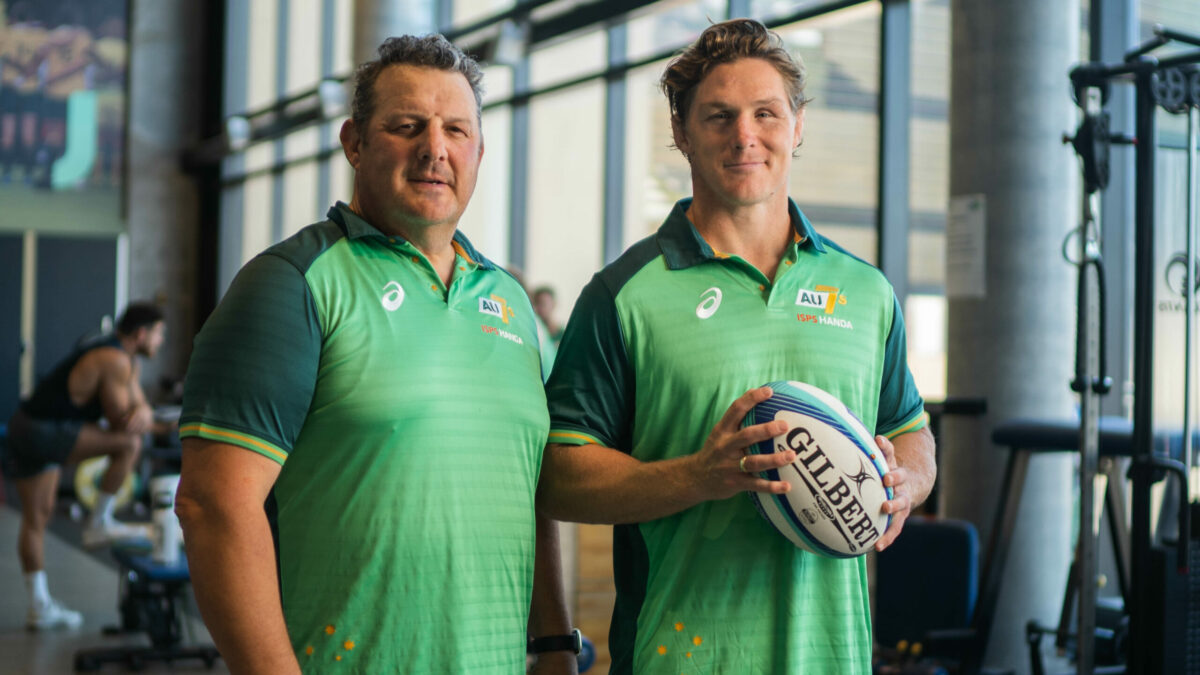
Without warning it felt as though Michael Hooper’s distinguished career had ended without the last dance. He had finished up with the NSW Waratahs following the conclusion of the Super Rugby Pacific season and had a rough timeline for the rest of the year before joining with the Australian Sevens team ahead of the Olympics next year.
“It’s just gone – it’s so immediate. I never thought about those moments because there was always next week – there was always the next thing to try and play for. But then you think…
“‘Well, that’s done. Should I have smelt the roses a bit more along the way?'”
Michael Hooper
Following his switch to the highly-decorated Australian Sevens team, Hooper is keen to represent his country at the 2024 Olympics in Paris; the team have already qualified due to their 5th-place finish in the World Rugby Sevens Series last season.
Michael Hooper’s Mental Health Struggles
In August 2022, then-captain of the Australian national team, Hooper made the difficult decision to withdraw from the travelling Wallabies squad, citing mental health struggles that meant he wasn’t in the right head space to don the iconic gold jersey.
Hooper was commended for his courage and honesty in voicing his struggles, with coach Dave Rennie calling his captain “one of the most professional and impressive men” he had ever coached.
“It was a pretty straightforward decision for me; I wasn’t ready to take the field… Being in Argentina it felt like being a million miles from home, so the dial was turned up on everything a bit. So that’s why, getting close to a game, it happened really abruptly for me.”
Michael Hooper
“Rugby is, and has been, up there for a long time, but probably in the last two or three years, there’s been a big shift. I’ve got a young family – I’ve got two kids. But at the time I had one and my wife was pregnant – their health and my health are a priority.”
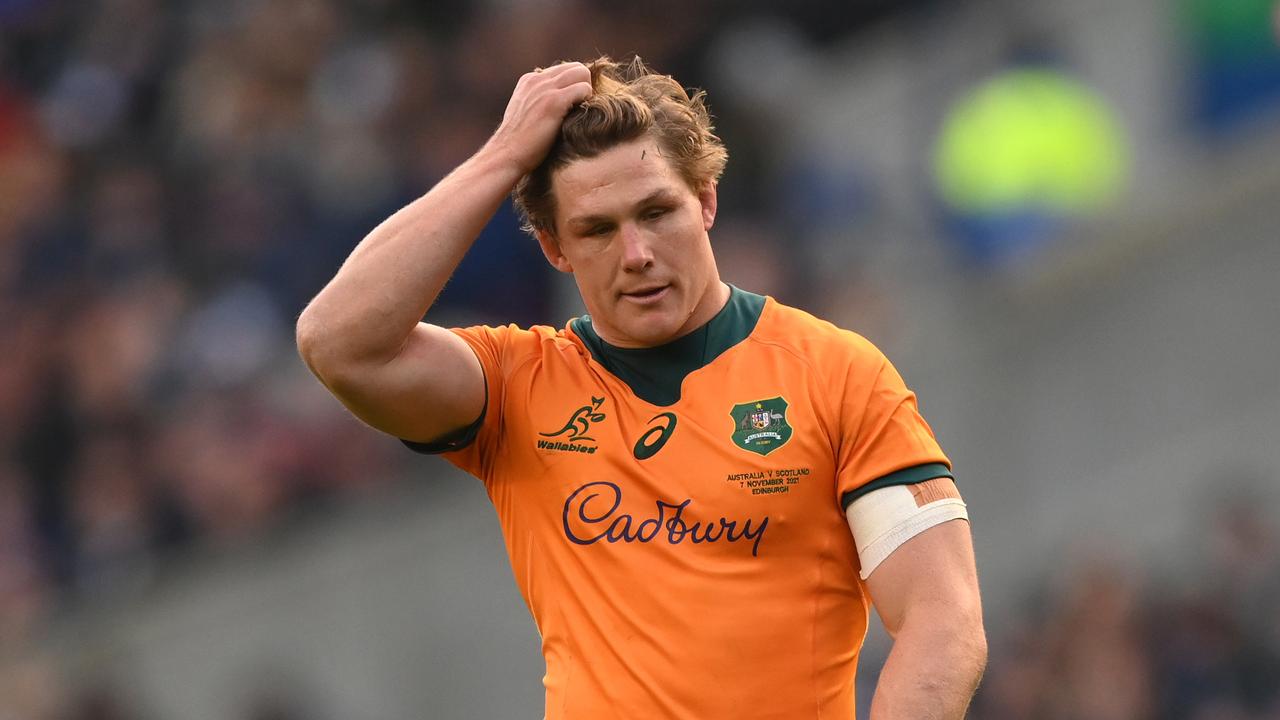
Experiencing homesickness at this stage in his career was an unsettling and foreign emotion for Hooper, who for more than a decade had stepped up to represent his country at every opportunity, unfazed by the demands of travel and conflicting schedules as a younger player.
It was a significant moment in World Rugby; for the first time, a national side captain had put their hand up to say they weren’t in the right frame of mind to take the field, signalling a conscious shift away from traditional approaches to mental health issues and their prevalence within sports.
“It’s no different than if someone needs to go and see a physio or whoever they need to see for their mental wellbeing – it should be the same… I guess I just needed eight weeks to get myself back to where I could perform, be happy and motivated.”
Michael Hooper
Recoverie And Moving On
Closer to home, Hooper’s been looking at his life after hanging up the rugby boots and was encouraged during a recovery session in Lockdown to bring what he learned through the years as a professional athlete to his own community in Sydney.
Inspired by some of the practices made famous by Dutch cold immersion therapist Wim Hoff, Hooper says he was first exposed to the holistic benefits of ice baths, Onsens and saunas specifically designed for recovery during a 2019 tour of Japan with the national team.
Hooper admitted that ice baths were never his favourite recovery session after a game, but found that during the latter stages of his career, he was looking to implement best practices after strenuous and at times demanding sessions on the pitch, seeking new methods to reduce inflammation and aid his recovery.
Through the Covid lockdown, when perhaps the rest of us were indulging in one too many bad habits with an abundance of time, Hooper was in contact with his former Brumbies captain Stephen Hoiles, who had opened a new space in Sydney with co-founders Trevor Folsom and Nick Bardetta. This space was specifically dedicated to sports recovery, aiming to introduce the Onsen culture first experienced in Japan to Australia’s fitness community.
“You’ve got four things that keep you going. You’ve got your physical health, your mental health, your social well-being and your spiritual… Rugby ticks all of those.”
Michael Hooper
With locations already in Coogee and Cronulla, Hooper got involved to establish a third Recoverie space within his own community of Manly, Sydney, bringing years of experience as a professional rugby player into the new space.
“Traditionally we always view the ice baths or a sauna as something you’d only do if you’re an athlete or if you’re staying in a hotel. The impression I always had was if you had too many beers on a Saturday night and Sunday comes around and you just want to go and sit in the sauna and sweat it out.”
“I spent six months up in Japan in 2021 and had the exposure to [the Onsen culture] there. All types and ages of people are in there and I think that touches on the mental benefit you get – you get a recovery benefit and an inflammatory benefit from these things but also just the ‘feel good’.”
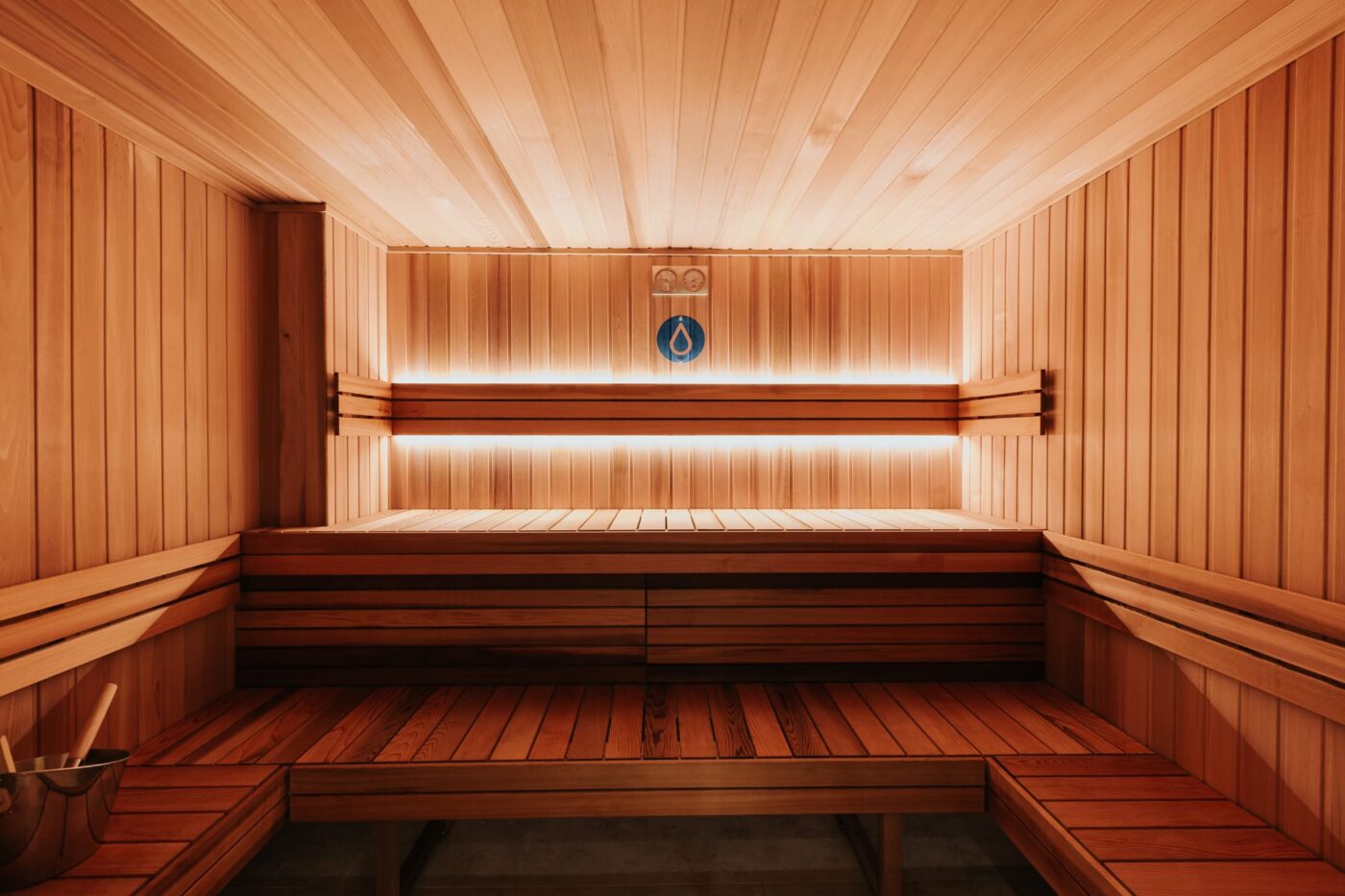
Michael Hooper’s Message
Hooper wants to bring what he’s learned into the active Northern Beaches community, encouraging everyday Australians to experience not only the holistic benefits of Onsen recovery but also the mental benefits and that feeling of community that he’s been fortunate enough to have throughout his career.
“This isn’t just something for myself or my teammates or professional athletes to do,” He said. “What’s been really cool about Recoverie is that it’s like a community. My wife and I will go there and sometimes it’s quiet but sometimes you’re talking with the other people in there and asking them what they’re going to do… You get this real community feel and that’s been the big push from Hoilesy and the guys…”
“You’re all in it together and trying to feel good, but also be healthy. There’s no one-size-fits-all all.”
Michael Hooper
